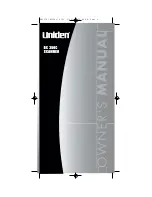
The USB Hub #1 is mainly used as a placeholder for future expansions. The USB hub #2 is used to
connect the camera and the RFID to the USB upstream bus. The USB camera imager controls both the
sounder and the lighting board through SPI and I2C respectively. The Lighting board is quite flexible to
provide UV or IR or white illumination as requested by the imager.
The RFID contactless reader drives two independent antennas. There is one antenna around the glass
window. This antenna will be referred as antenna #1 in this document. The other antenna is behind the
front face of the product. This antenna will be referred as antenna #2 in this document. Typically, both
these antennas will be scanning for RFID passports – one at a time.
High Speed USB Hub (#1 & #2):
Device classification
2 port USB High speed hub
Operating Voltage / Current
3.3V / 150mA
Digital/Analog
Digital circuitry
Crystal Frequency
24 MHz
PLL Multiplier
x20 (480 MHz internal frequency)
Data transfer rate
480Mbps
Intentional Radiation
No
Software requirements
USB host should have generic USB hub driver. All windows machine
supports this USB hub class and it should start up right away. There are
not application software requirements.
Operational Description:
High speed USB hub #1:
This high speed USB hub is used for future extension of the product.
High speed USB hub #2:
This High speed USB hub provides USB connectivity to the RFID and the camera. It provides two USB
downstream ports. One of the downstream ports is connected to a RFID full speed device and the other
is connected to a 1.3 Mega pixel imager.
Camera Imager:
Device classification
USB 2.0 High speed camera
Operating Voltage / Current
5V / 150mA
Digital/Analog
Digital circuitry
Crystal Frequency
24 MHz
PLL Multiplier
x20 (480 MHz internal frequency)
Data transfer rate
480Mbps
Intentional Radiation
No
Image resolution
2048 x 1536 (3.1 Mega pixel)
Software requirements
USB host should have Access IS camera drivers installed. The camera
starts-up only if camera application software (like Amcap or IScap) is

























